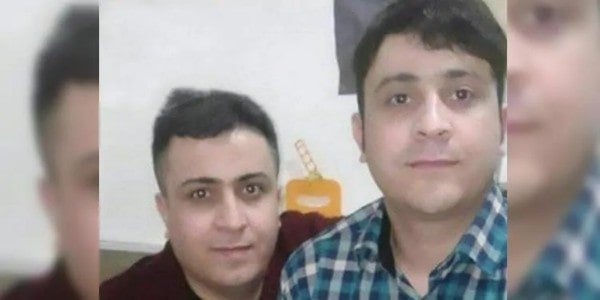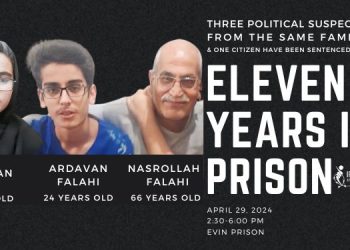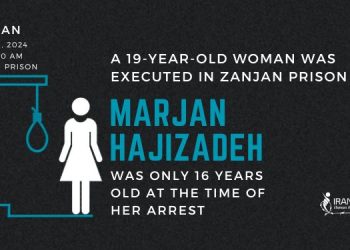Two imprisoned brothers one of whom was paralyzed due to being beaten in prison were executed in Iran on Sunday.
Iranian authorities executed Davood and Bahaoddin Ghasemzadeh for a crime that took place 12 years ago and, according to amnesty International, following a conviction based on forced “confessions”.
In addition to the brothers Davood and Bahauddin Qasemzadeh, another man identified as Anwar Abdollahi was also executed on murder charges in Urmia Prison in northwest Iran.
Davood suffered a severed spinal cord injury after being beaten in prison.
The three prisoners were taken to solitary confinement on Saturday.
Davood and Bahaoddin Ghasemzadeh were from the city of Salmas in West Azerbaijan Province in northwest Iran.
They were arrested in 2009 on charges of killing two people in a tribal conflict.
On the court session which was held a year later, Bahaoddin accepted the charges of both murders.
After leaving the court, he escaped and went to Iraqi Kurdistan.
After he escaped, security forces arrested his sister, mother and other brother and transferred them to Urmia Prison, demanding that Bahaoddin return in exchange for his family’s release.
He returned to the country a month later. During this period, Davood Ghasemzadeh suffered severe injuries to his spine and spinal cord due to severe beatings in prison.
Davood Ghasemzadeh had previously contracted a leg infection due to a spinal cord injury and poor prison conditions.
He went on hunger strike in October 2020 to protest at poor prison conditions, treatment in detention, and denial of access to adequate medical care for his spinal cord injury that paralyzed one of his legs.
The brothers wrote a letter to the head of the prison requesting that their death sentences be carried out after 12 years in prison.
The clerical regime seeks to prevent escalation of popular protests by these executions, extensive arbitrary arrests, and other repressive measures.
Iran HRM once again calls on the UN High Commissioner for Human Rights, the UN Human Rights Council and other institutions defending human rights to take urgent action to save the lives of Iranian prisoners on death row. The Iranian regime’s dossier of human rights violations must be referred to the UN Security Council. The leaders and officials of the clerical regime in Iran must face justice for four decades of committing crimes against humanity.











